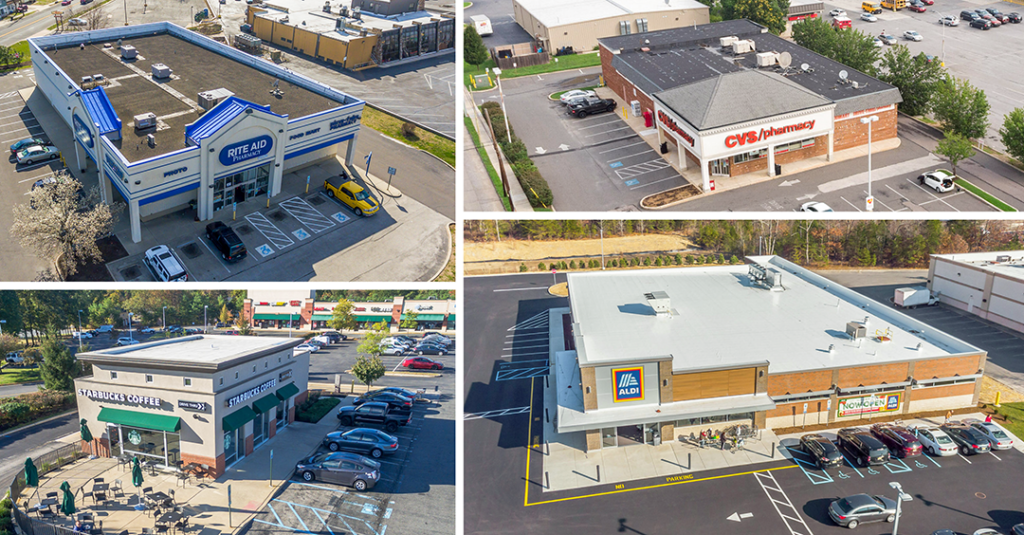In a prior blog post, our colleague Margo McDonnell, whose 1031 Corp specializes in 1031 tax-deferred exchanges, covered some of the basics associated with this nearly century-old tax incentive.
But once you’re clear on questions like “What is a like kind exchange?” or “Is a like kind exchange the same as a 1031 exchange?”, the next step is taking the right strategy to achieve the highest and best results.
And on that score, there’s a common mistake to avoid in your approach to pursuing a 1031 exchange—namely, you should think twice about navigating the property-identification process alone, perhaps by opening up your inbox to a flood of 1031 exchange listings supplied by all possible sources.
As McDonnell noted in her column, when 1031 exchange investors relinquish a property for sale, the clock starts ticking on a federally imposed, 45-day deadline for identifying a potential replacement property. At Equity Retail Brokers, we routinely receive phone calls and emails from 1031 investors who have found themselves in a chaotic “scramble” to find that replacement commercial real estate asset before it’s too late.

It’s never a good idea—or feeling—to acquire a like-kind property during a harried “up leg” portion of the process.
Why do investors end up in this position? In many cases, it has to do with entering an exchange for the first time, and without implementing a strategy.
These investors tend to operate with the unquestioned assumption that it’s better to “talk to all the brokers in the market” and open up the property search to all manner of commercial real estate listings for sale. In reality, this spurs a flood of suboptimal offers and puts the investor on the aggressive mailing lists of brokers who may have little or no experience in the nuances of like-kind exchanges.
In such situations, investors are likely to:
- not know the comp sales and pricing to expect for specific assets;
- lack access to off-market deals and/or get to on-market deals too late; and
- fail to analyze and value target properties in an accurate and objective way.
This flawed approach typically causes buyers to waste a few weeks looking for the right deals. When they finally identify a target replacement property and try to get it for a steal, they’re likely to lose out on the opportunity and have to start over.
That, of course, tends to culminate in an up-leg scramble.
We see investors get far-better results by establishing relationships with brokerage firms that have broad experience in 1031 transactions. To do so requires some upfront time and effort on the part of the investor. It’s important to ask hard questions of any and all top prospects: How many 1031s has the brokerage firm completed? In which markets? Involving what types of properties? And with what kinds of results?
The goal should be to partner with a firm that will control the process and efficiently find and analyze the rightprospective deals. Find out what best practices the broker relies on for key milestones such as vetting other parties, obtaining all relevant information and negotiating letters of intent.

Specialists in 1031 exchanges spend their day sourcing deals, talking to owners and getting the inside track on commercial real estate properties that are off-market or will hit the market soon. By working with such expert “point guards”—to use a basketball analogy—investors are more likely to rack up wins.
Working with a 1031 exchange broker also means you’ll have two sets of eyes on every deal. It’s reassuring to know that you’re backed by an objective commercial real estate professional who keeps your interests in mind at all times. The benefits are especially visible when your broker alerts you to an overpriced or unsuitable deal that otherwise may have consumed your precious time and attention.
The average real estate professional gets more than 100 emails per day. Receiving a daily flood of junk listings from 10 or 20 brokers bogs down the 1031 exchange process. With the right specialist, you’ll receive only those deals that are worth your attention.
Count on the broker spending 75 to 100 hours representing your interests. That’s a substantial commitment. However, the results will far exceed those of a process in which multiple brokers continually push their own random listings. By finding a service-oriented firm with a dedicated 1031 exchange program, investors can avoid such headaches—and close deals that meet or exceed their highest expectations.
For more information, please contact us.
